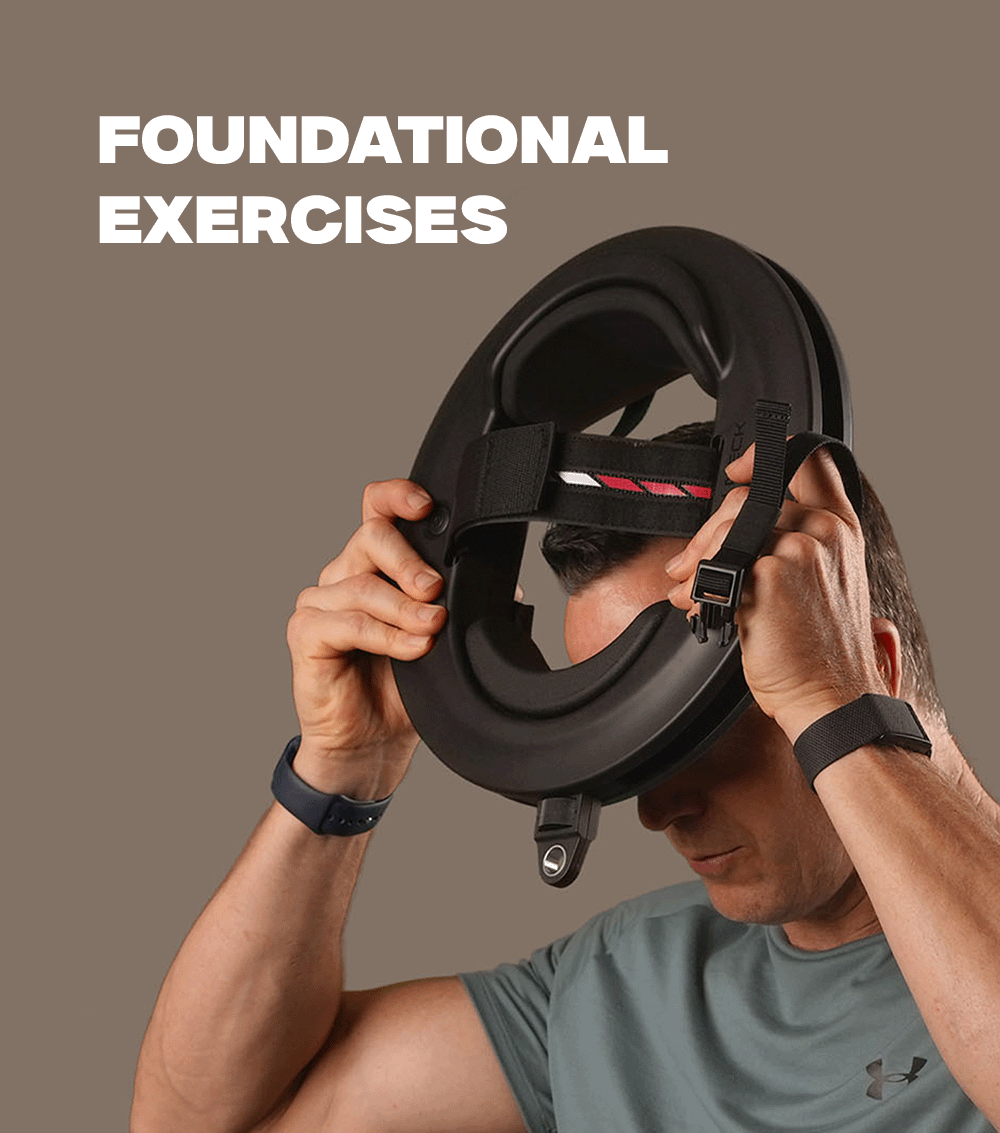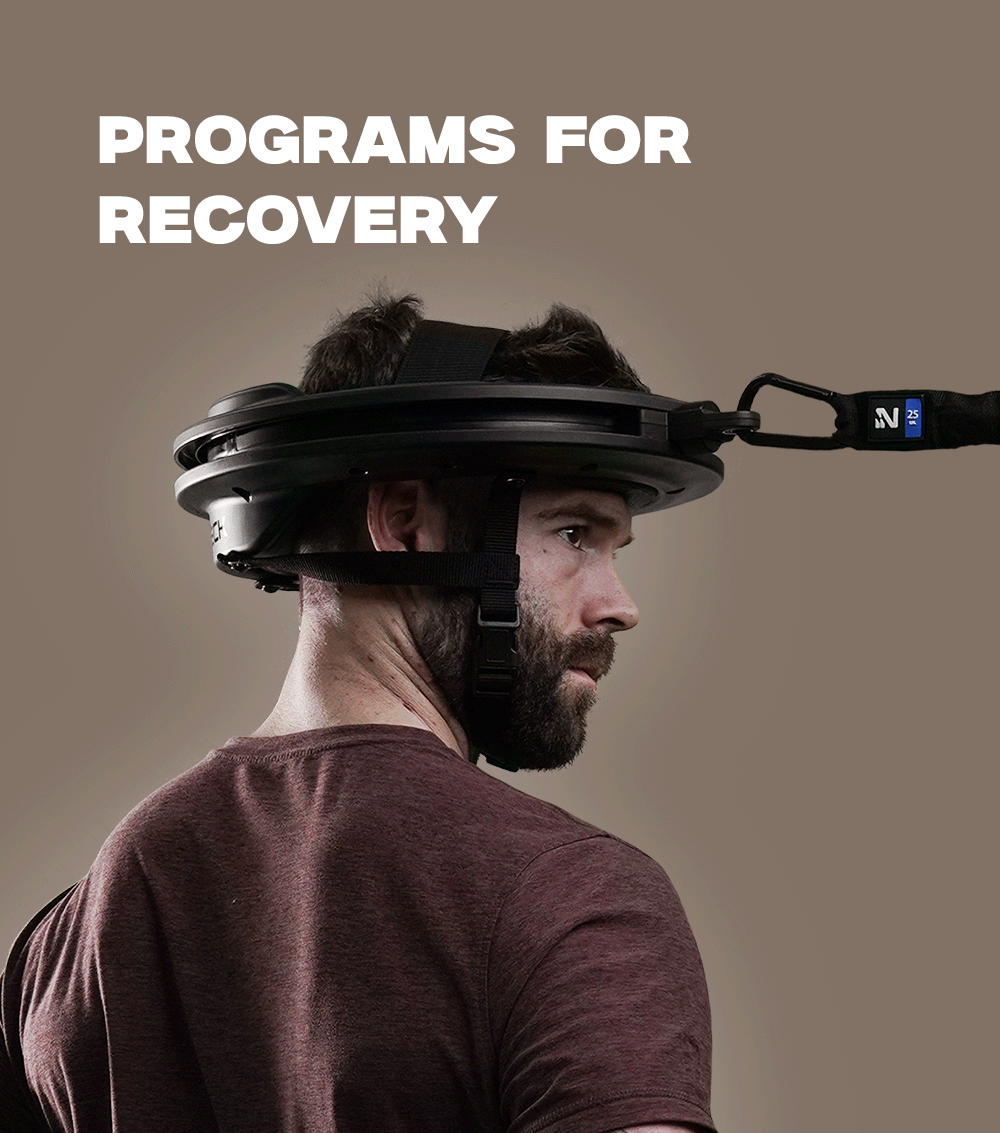Waking up with neck pain can ruin your morning before it even begins. It can leave you stiff, sore, and struggling to turn your head, impacting everything from getting dressed to driving to work.
Most neck pain after sleep is preventable. In this guide, we’ll break down the common causes, effective remedies, and simple prevention strategies that can help you wake up feeling strong, not sore.
What Causes Neck Pain After Sleeping?
Neck pain after sleeping isn’t just uncomfortable, it's a sign that something in your nightly routine may need adjusting. Understanding the root causes can help you make small changes that lead to big relief [2].
1. Sleeping in a Strained Position
The way you sleep has a direct impact on how your neck feels in the morning. If your head is tilted too far forward, back, or to one side for hours at a time, the muscles and joints in your neck can become strained.
Tip - Whether you sleep on your back or side, your head and neck should stay aligned with your spine. If your neck is bent unnaturally, it's time to rethink your sleep setup.
2. Using the Wrong Pillow or Mattress
Pillows that are too high, too flat, or too soft can throw off your spinal alignment especially if you're a side sleeper. Likewise, a mattress that’s too firm or too saggy can create pressure points that lead to neck and back issues.
What to Do - Consider memory foam or ergonomic pillows that cradle your neck, and invest in a mattress that supports your sleeping posture without creating pressure or misalignment.
3. Sudden Movements During Sleep
Tossing, turning, or jerking your head in your sleep can lead to pulled muscles or nerve irritation. This is especially common if you’re experiencing stress or sleep disruptions.
Solution - Create a calming bedtime routine, limit screen time before bed, and ensure your bedroom is optimized for quality rest, cool, quiet, and dark.
4. Previous Injuries or Whiplash
If you’ve had a past neck injury, even one that seemed minor, it can resurface during sleep, especially if your muscles are weak or stiff.
Tip - Strengthen your neck through gentle exercises and range-of-motion routines to support healing and reduce the chances of recurring pain.
5. Underlying Conditions Like Arthritis or Nerve Compression
Degenerative conditions such as cervical arthritis or disc-related nerve compression can cause chronic neck discomfort, especially overnight when movement is limited.
What to Watch For - Persistent pain, numbness, tingling, or weakness in your arms or hands may be a sign of an underlying issue. It’s important to speak with a healthcare provider for an accurate diagnosis.
Effective self-care techniques to reduce stiffness, ease pain, and improve mobility.
Before you rush to the doctor, consider these safe and effective ways to ease neck pain at home:
Hot and Cold Therapy
Alternating between heat and cold can reduce both inflammation and muscle tightness. Avoid heat in the first 24 to 48 hours if swelling is prominent [2].
- Cold helps numb acute pain and bring down swelling (especially in the first 24–48 hours).
-
Heat improves blood flow and helps muscles relax, use a warm compress or take a hot shower.
Routine: Apply cold for 10–15 minutes, then switch to heat for another 15–20 minutes. Repeat as needed.
Stretching and Gentle Exercise
Movement is key to recovery. Light stretches and mobility drills can loosen tight muscles and improve circulation. In fact, exercises like neck curls and chin tucks are especially helpful for reactivating weak muscles and restoring alignment.
Work only in a comfortable mid-range; move slowly; do not hold your breath. Stop immediately if you notice dizziness, visual change, numbness, tingling, weakness, unsteadiness, or electric-like facial pain. Do not perform ballistic or high-velocity neck movements [1, 3].
Try:
- Shoulder rolls (10 reps)
- Neck side-bends within a comfortable mid-range, hold 10 to 15 seconds
- Gentle head turns within a comfortable mid-range; no sustained end-range holds.
- Chin tucks to improve posture and alignment
Avoid aggressive or jerky movements. Move within a comfortable range, and stop if you feel pain.
How to Prevent Neck Pain While Sleeping
Changing how you sleep can make all the difference. Here's how to wake up pain-free [2]:
Choose the Right Pillow
The ideal pillow keeps your neck in a neutral position, neither too elevated nor too flat.
Look for:
- Memory foam or contour pillows that conform to your neck shape
- Adjustable loft pillows if you switch sleeping positions
- Neck-support pillows with ergonomic curves
Improve Your Sleep Position
- Back sleepers: Place a pillow under your knees to maintain spinal alignment.
- Side sleepers: Keep a pillow between your knees and ensure your pillow supports your head and neck evenly.
- Stomach sleepers: This position puts the most strain on the neck. If possible, switch to your back or side.
When to See a Doctor for Neck Pain After Sleeping
While occasional stiffness after sleep is normal, certain symptoms indicate that it's time to move beyond home remedies and consult a professional.
Watch for These Red Flags [2,3]:
-
Pain that lasts more than a few days without improvement
-
Radiating pain down your arms or into your shoulders
-
Numbness, tingling, or muscle weakness
-
Headaches or dizziness triggered by neck movement
- Difficulty turning your head or severe loss of motion
Sudden severe neck or occipital pain with any neurological symptom such as dizziness, visual change, slurred speech, facial numbness or weakness, limb weakness, or unsteadiness.
Avoid neck exercise and manipulation and seek urgent medical care if these occur.
If you experience any of the above or if your neck pain keeps coming back it’s worth getting a professional evaluation.
Who to Consult:
- Chiropractor: mobilisation and soft-tissue work only; avoid high-velocity neck manipulation, especially if dizziness or neurological symptoms are present; discuss risks and alternatives [3].
-
Physical Therapist – for guided strengthening and rehab programs
-
Orthopedic or Pain Specialist – for chronic conditions or nerve-related symptoms
Early diagnosis ensures you're treating the root cause, not just masking the symptoms. And the sooner you act, the sooner you can move pain-free.
How Iron Neck Helps You Build a Stronger, Pain-Free Neck
Iron Neck was built to do more than just relieve pain; it helps rebuild your strength, restore mobility, and prevent pain from coming back. Our patented device offers 360° resistance training for your neck, allowing you to:
- Improve posture and alignment
- Strengthen weak or imbalanced muscles
- Boost range of motion in every direction
- Speed up recovery from strain or injury
Used by athletes, physical therapists, and everyday people alike, Iron Neck is a proactive solution to chronic or recurring neck pain.
Real Results: What Iron Neck Users Are Saying
You’re not alone in your journey. These stories from real users show how Iron Neck helps people overcome years of pain, poor sleep, and limited mobility.
“Gift from God!!”
"For over a decade, I suffered from degenerative neck muscles due to bad posture and sports injuries. I was seeing my chiropractor twice a week and waking up with a stiff neck every morning unable to turn my head without pain or clicking. Since using Iron Neck, I’ve experienced life-changing relief. I can finally move freely again."
Jasper C. 🇺🇸
“I love it”
"I was having trouble sleeping because of a sore, stiff neck. So I decided to train my neck to get stronger with the Iron Neck. After just 4 weeks, my neck feels 90% better and now I’m sleeping through the night without discomfort. It was the best investment I made for my recovery."
Herbert R. 🇺🇸
These testimonials are part of the 96% of users who report less discomfort, better mobility, and a higher quality of life after using Iron Neck.
Frequently Asked Questions (FAQs)
1. Why does my neck hurt only after sleeping but feels fine during the day?
This usually points to a problem with your sleep position, pillow, or mattress. During sleep, the neck can stay in an awkward position for hours, leading to muscle strain or nerve compression. Once you’re up and moving, blood flow improves and muscles loosen up temporarily easing the discomfort.
2. What’s the best sleeping position to avoid neck pain?
Sleeping on your back or side is ideal. Back sleeping promotes natural spine alignment, especially with a low-loft pillow. Side sleeping is also good if your pillow supports your neck and fills the space between your head and shoulders. Avoid sleeping on your stomach, which twists the neck and stresses your spine.
3. How long should I try home remedies before seeing a doctor?
If your neck pain doesn’t improve within 3–5 days of using hot/cold therapy, stretching, and posture correction or if it gets worse consult a medical professional. Immediate attention is needed for pain with numbness, weakness, or shooting pain down your arm.
4. Can stress cause neck pain while sleeping?
Absolutely. Stress can cause muscle tension, especially around the neck and shoulders. If you're clenching your jaw or tensing your muscles overnight, you might wake up with soreness. Try winding down with calming techniques like deep breathing, gentle yoga, or a warm shower before bed.
5. Is it safe to exercise with neck pain?
Yes but stick to gentle, low-impact stretches and mobility work. Avoid heavy lifting or fast, jerky movements. The Iron Neck device, for example, allows for controlled, progressive resistance to help strengthen your neck without overexerting it.
References
- Blanpied PR, Gross AR, Elliott JM, et al. Neck pain: clinical practice guidelines—revision 2017. J Orthop Sports Phys Ther. 2017;47(7):A1–A83.
- Childress MA, Stuek SJ. Neck pain: initial evaluation and management. Am Fam Physician. 2020;102(3):150–156.
- Yaghi S, Jadhav AP, Engelter S, et al. Treatment and outcomes of cervical artery dissection in adults: A scientific statement from the AHA/ASA. Stroke. 2024;55(3):e91–e106.
- ACR Appropriateness Criteria®. Cervical Pain or Cervical Radiculopathy: 2024 Update. J Am Coll Radiol. 2025;22(5S):S136–S162.
Disclaimer: The Iron Neck blog provides educational content on neck training, fitness, and recovery. It’s not a substitute for medical advice, please consult a healthcare professional before starting any new exercise or recovery program.










Leave a comment
This site is protected by hCaptcha and the hCaptcha Privacy Policy and Terms of Service apply.